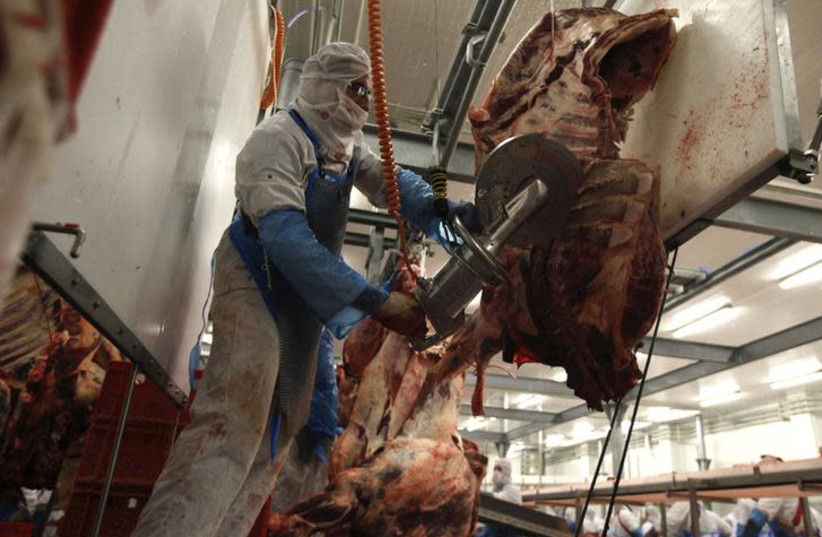The Greek Jewish community plans to request that the Greek government draw up legislation to legalize shechita, kosher animal slaughter, after the country’s highest court ruled last week that the practice was illegal.
The Council of the State, Greece’s supreme administrative court, struck down regulations issued by ministerial decision that provided an exemption from pre-stunning for religious animal slaughter.
This has meant that shechita in Greece became illegal overnight, depriving the Jewish community of kosher meat sourced in Greece.
Victor Eliezer, the secretary-general of the Central Board of Jewish Communities in Greece, told The Jerusalem Post by email that the organization will now “appeal to competent authorities seeking cooperation in order to find a viable solution that will allow the kosher slaughter in Greece.”
Eliezer added that the Central Board believes the current government “has the political willingness to address the issue,” and added that the Jewish community “enjoys productive cooperation and mutual understanding with the Government and the state authorities.”

In the meantime, the Jewish community, which numbers some 4,000 to 5,000 people, is making do with imported kosher meat from elsewhere in Europe, although Eliezer noted that this was much more expensive than producing local kosher meat.
“We hope that the Greek State’s competent authorities soon will regulate the issue of animal slaughter with a just and viable solution that will safeguard the continuation of the observance of the religious duties of the Greek Jews, as well as of the thousands of Jewish visitors in Greece,” said Eliezer.
In 2020, the European Court of Justice upheld a ban on kosher and halal slaughter in Belgium and dismissed arguments that the ban infringed on the religious rights of Jews and Muslims by requiring them to stun animals before slaughter, something forbidden by Jewish and Islamic law.
Although the European Court of Justice ruling said that its ruling was pertinent only to the specific case in Belgium, European Jewish leaders at the time expressed concern that it would set a precedent for other European countries to enact bans, and to stymie legal appeals against such legislation, or indeed against national court rulings.
Shimon Cohen of Shechita UK said the idea that the ruling would not set a precedent was “a pipe dream” and that the European court ruling “indicated to other countries that they could insist on stunning” despite religious objections.
Although the Council of the State ruling did not mention the decision of the European court, Cohen noted that that ruling now looms over any possible appeal of the Greek decision back to the European court.
